Cherish the Irish Ryder Cup heritage of the last 16 years, for we may not see the likes of it again in our lifetime.
Four times since 2002 Europe has featured three players from the Emerald Isle, representing 25 per cent of the team.
Now we’re down to one this year, with Rory McIlroy the lone standard bearer for this island, just as he was at Hazeltine in 2016.
That’s a shame, considering how often Irish golfers have been thrust into the spotlight at decisive moments with victory or defeat hanging in the balance.
Eamonn Darcy, Christy O’Connor Junior, Philip Walton, Paul McGinley and Graeme McDowell all carved their own niche in Ryder Cup history as heroes of the hour.
But now, change is upon us.
Instead of a production line of our players competing for Ryder Cup selection, the wheel is turning full circle and trending downwards.
Perish the thought – but Europe might go into battle with the USA in the relatively near future without a playing representative from this island.
The last time that happened was 1993 at The Belfry when the USA won the match and thereby retained the trophy they had won at Kiawah Island in 1991.
Philip Walton (1995) and Darren Clarke (1997) were the only Irish on their respective teams after ’93, but from 1999 to 2010 inclusive, the rise of the Celtic Tiger coincided with a remarkably strong and consistent presence at Ryder Cup contests.
Padraig Harrington, Darren Clarke and Paul McGinley donned the European colours with pride in 2002, 2004, and 2006.
G-Mac joined Rory McIlroy and Harrington to provide a quarter of Colin Montgomerie’s side which defeated the Americans at Celtic Manor in 2010.
Following that success, Major champions McIlroy and McDowell competed with distinction on the 2012 and ’14 teams.
Rory hopefully has many more Ryder Cup appearances to come, but the ‘old guard’ have rotated into the non-playing roles.
Clarke and McGinley have captained Europe and been vice-captains.
Harrington is a virtual certainty to be a future captain and is once again on duty in Paris as one of Thomas Bjorn’s vice-captains.
G-Mac makes his debut as a vice captain this time round, and is unlikely to make the team again as a player, although no doubt he would eventually fancy a tilt at captaincy.
Shane Lowry and Paul Dunne look the most likely to contend for a team place in 2020 and onwards but nothing is guaranteed as the competition in Europe hots up.
However, the pedigree of the Irish is long established, with their innate competitiveness and love of match play honed through the amateur ranks paying dividends for Europe since 1979.
That said, nothing came easy to the Irish pioneers, starting with Des Smyth in 1979.
John Jacobs was the captain for the first European side. Ten players qualified automatically.
The remaining two were to be picked by the selection committee of Jacobs, Neil Coles who was chairman of the Players Tournament Committee, and Seve Ballesteros, the leader of the Order of Merit.
Smyth came into the Carrolls Irish Open at Portmarnock in August with an injured wrist and in 12th position on the points table.
Coles actually played with Smyth on the Sunday to ascertain his fitness.
The then 26-year-old shot 72 to finish on +8 for the tournament but did enough to earn his place on the team.
Prior to the Irish Open, the Louth native felt his chances were slim and was thrilled to get the call to duty for the match at The Greenbrier in West Virginia.
“As far as the wrist is concerned, I could lift an elephant” was his verdict on hearing the news of his selection.
Smyth was joined by Eamonn Darcy on the 1981 team at Walton Heath, again captained by Jacobs, with the two Irishmen qualifying via the points table.
This was Darcy’s third appearance as he had played on the GB & Ireland sides of 1975 and ’77.
As fate would have it, he would not make the European team again until 1987, and like his great pal, Christy O’Connor Junior and Philip Walton, disappointment and frustration was to come before unforeseen glory.
Walton Heath was an unhappy memory. Darcy played one fourball, partnered by Bernard Gallacher, and lost to Hale Irwin and Ray Floyd.
Jack Nicklaus took him down 5&3 in the singles as the USA won by 18½ to 9½.
Happily, fate and his golfing skills granted atonement for Darcy in his 1987 moment of moments when he holed an epic putt to defeat Ben Crenshaw at Muirfield Village.
That point helped Europe beat the USA on American soil for the first time, thus elevating Darcy to the level of “Ryder Cup hero.”
Wonderful as that occasion was, little did Darcy realize that the match with Crenshaw was to be his last appearance in the event, due to his controversial omission in 1991 for Kiawah Island.
Three weeks before final selection, captain Bernard Gallacher visited Darcy at his home.
The Scot told him he was in the team and instructed him to be at Wentworth for the official photo when the team was formalized.
The last qualifying event was in Germany. Darcy maintains he told Gallacher that he would be taking a break and would not play that tournament.
As far as Darcy was concerned, that was not a problem for the skipper.
With a week to go Darcy was seventh in rankings.
Murphy’s Law then struck with a vengeance.
Three players came through from Germany to put the Irishman just outside automatic qualification – stg£52 short on the money list.
Gallacher then didn’t pick Darcy. In fact one of his picks was Mark James who was 27th in the list, so the whole episode left Darcy very disappointed.
“It was one of my regrets in golf that I didn’t play a Ryder Cup in the Nineties.
“I had played four matches in the Seventies and Eighties and it would have been nice to play one in another decade.
“In Germany, three players passed me out and I was £52 short of automatic selection.
“Bernard had two picks and he didn’t pick me. He probably didn’t think I could be knocked off the table.
“It would have been nice to have played five Ryder Cups, but it’s water under the bridge now,” he said.
Christy Junior, like Darcy, suffered defeat with GB & Ireland, but in the mid-80s, with the rise of Europe, he was entitled to feel he could earn a place on Tony Jacklin’s team in 1985.
Junior, who sadly died in 2016, made his debut at Laurel Valley in 1975, with Eamonn Darcy and John O’Leary also in that team, but once again the USA crushed GB & I 21-11.
Better days lay ahead for Christy on Tour and he thrust himself into contention a number of times, only to miss out by relatively small margins on the money list, particularly in 1977 when he was 13th on the order of merit but did not get a captain’s pick from Brian Huggett.
The 1985 experience, a season in which he finished third in the Open Championship, really galled him, so much so that he did not even speak to Tony Jacklin for a long time after the team was announced.
What happened was that Junior had done everything he could to achieve his ambition of playing in that ’85 match at The Belfry.
The Galway native finished 10th in the rankings, stg£115 away from ninth.
On the surface, this was not a huge problem, as the top nine automatically qualified, and Jacklin had three selections to make. Surely the man in 10th place would get the nod from the captain?
That’s not how events transpired.
Nick Faldo, based on past glories and not current form that year, was tipped to get a pick, and he did.
Ken Brown was also chosen, but the third pick was, amazingly, Jose Rivero of Spain – a player whose form was reflected in his finishing stg£2,740 behind Christy in the money list.
That decision left the Irishman feeling “disgusted” and “totally disappointed.”
He could be forgiven for thinking his last chance had passed when the 1987 team won at Muirfield Village with O’Connor back home, albeit cheering for his pal Eamonn Darcy.
And then came 1989. A welcome reprieve at the ripe old age of 41 for Christy Junior.
It could, and should, have been the first year that three Irishmen played for Europe.
Ronan Rafferty was automatic as the Order of Merit leader; Philip Walton ended the campaign one place ahead of Junior, and if Jacklin was giving O’Connor a pick, then why not also go for Walton?
Jacklin’s view on that was: “I picked Christy because I would prefer a young player like Walton to play himself into the side as did Ronan Rafferty.”
No luck for Walton, then, but on to The Belfry.
The rest is history. The 18th hole in his match against Fred Couples.
All the pressure on Junior’s shoulders as the frenzy of excitement builds to fever pitch. Jacklin’s epic words to him: “One more swing for Ireland.”
The sweet swing, perfect contact, the ball soaring through the air to land on the green and finish just three feet from the flagstick.
And the roar that screamed out of 50,000 throats at the realization that Couples was in serious bother. So it proved. Junior’s Ryder Cup story had a very happy ending.
Walton’s day had yet to come and he took no chances in 1995, automatically qualifying in 10th place for the match at Oak Hill under Bernard Gallacher’s captaincy.
This had been his goal for the season, and with two Tour wins, one of them a playoff victory over Colin Montgomerie for the English Open, Walton achieved his objective.
When the action began, the Irishman spent the Friday frustrated on the sidelines as he did not get a game.
His one appearance before the Sunday singles came in the morning foursomes, partnered by Ian Woosnam on day two of the match.
Their opponents, Loren Roberts and Peter Jacobsen, edged that by a one-hole margin.
Walton was placed 11th in the singles order, competing against Chip Beck and as tension rose to breaking point, it was the Dubliner who got the crucial point to finish an amazing European victory.
Years later, Walton revealed an unwelcome fallout of that emotion-charged and tension-filled weekend at Oak Hill as his form faltered in the seasons after that occasion.
“In some ways Oak Hill 1995 probably wasn’t the best thing that ever happened me.
“I played okay in 1996, but the real effect began to show in 1997. Something went from me. I felt it, but it’s very hard to explain. Definitely that Ryder Cup did take something from me,” he said.
Such was Walton’s fate, but his courage and resilience, not to mention his skill over those closing holes at Oak Hill will always bear witness to his innate quality as a Tour pro.
Unlike Walton, Paul McGinley whose magical putt in 2002 clinched victory for Europe, and Graeme McDowell, the hero at Celtic Manor in 2010, survived and prospered via their connection with the Ryder Cup.
In fact, Darren Clarke’s debut in 1997 heralded a golden age for the Irish in the Ryder Cup, so much so that in the 21 years since Clarke played at Valderamma, we have become accustomed to asking the question: “how many Irish will we have on the team” with a sense of expectation, rather than “will we have anyone on the team?”
Let’s hope those days come again soon.
Irish players on European Ryder Cup teams
1979 – 1: Des Smyth
1981 – 1: Des Smyth
1983 – 0 Irish
1985 – 0 Irish
1987 – 1: Eamonn Darcy
1989 – 2: Christy O’Connor Junior and Ronan Rafferty
1991 – 1: David Feherty
1993 – 0 Irish
1995 – 1: Philip Walton
1997 – 1: Darren Clarke
1999 – 2: Darren Clarke and Padraig Harrinton
2002 – 3: Padraig Harrington, Darren Clarke, Paul McGinley
2004 – 3: Padraig Harrington, Darren Clarke, Paul McGinley
2006 – 3: Padraig Harrington, Darren Clarke, Paul McGinley
2008 – 2: Padraig Harrington and Graeme McDowell
2010 – 3: Rory McIlroy, Padraig Harrington, Graeme McDowell
2012 – 2: Rory McIlroy, Graeme McDowell
2014 – 2: Rory McIlroy, Graeme McDowell
2016 – 1: Rory McIlroy
2018 – 1: Rory McIlroy
Irish Ryder Cup representation for Europe by the numbers.
3 – 4 times (2002, 2004, 2006, 2010)
2 – 5 times (1989, 1999, 2008, 2012, 2014)
1 – 8 times (1979, 1981, 1987, 1991, 1995, 1997, 2016, 2018)
0 – 3 times (1983, 1985, 1993)

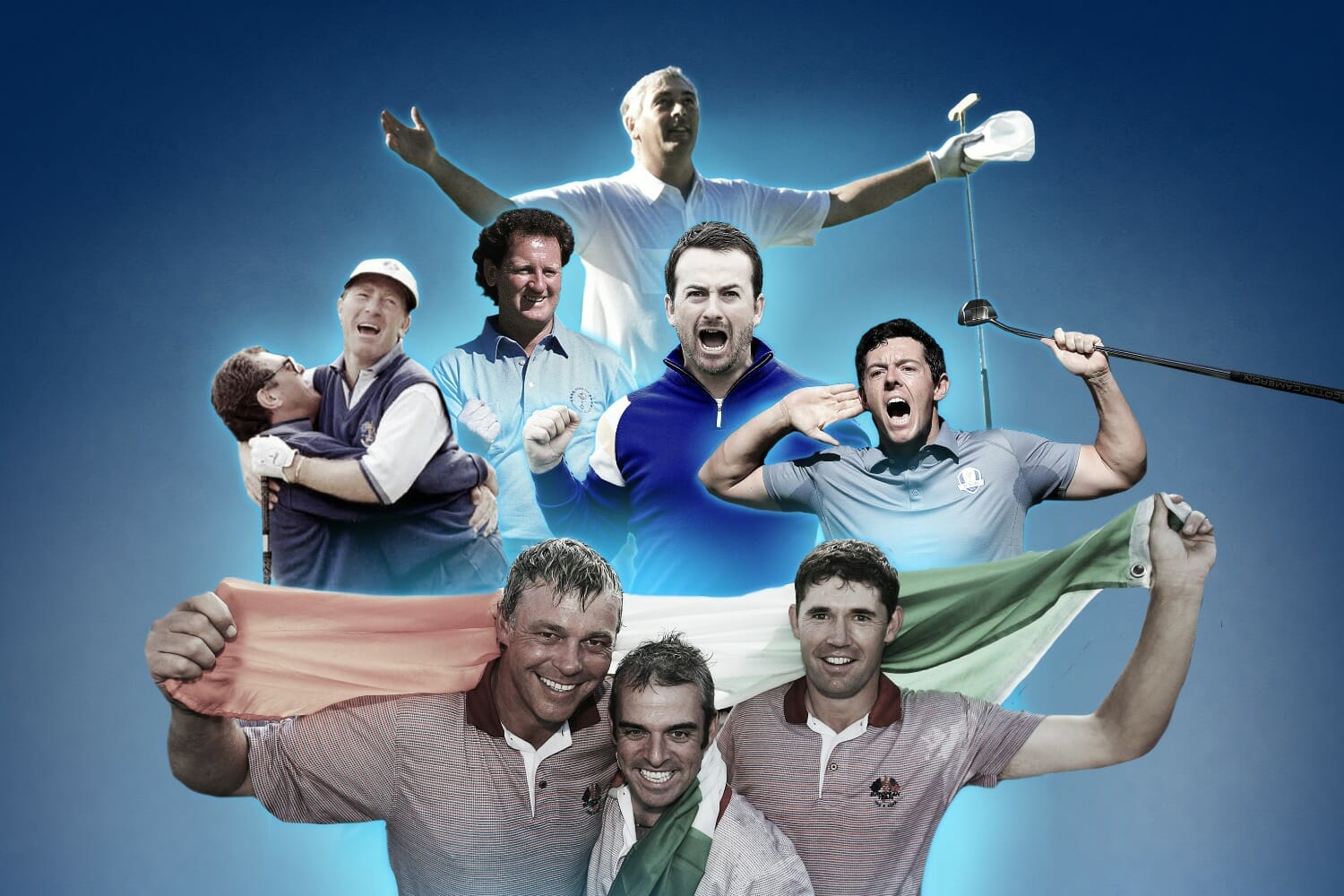

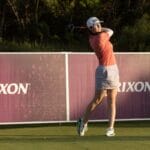

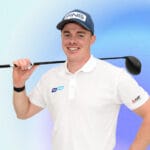
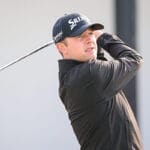
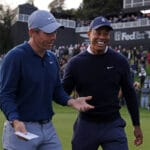
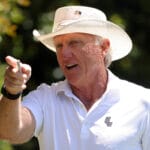
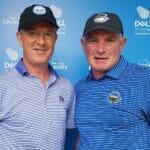
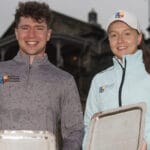

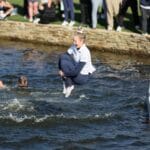
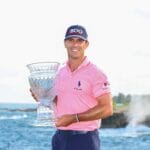
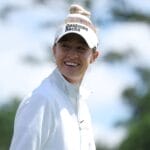
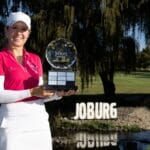
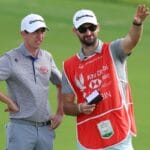
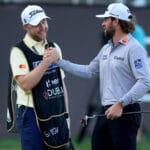
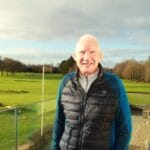
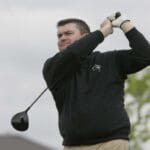



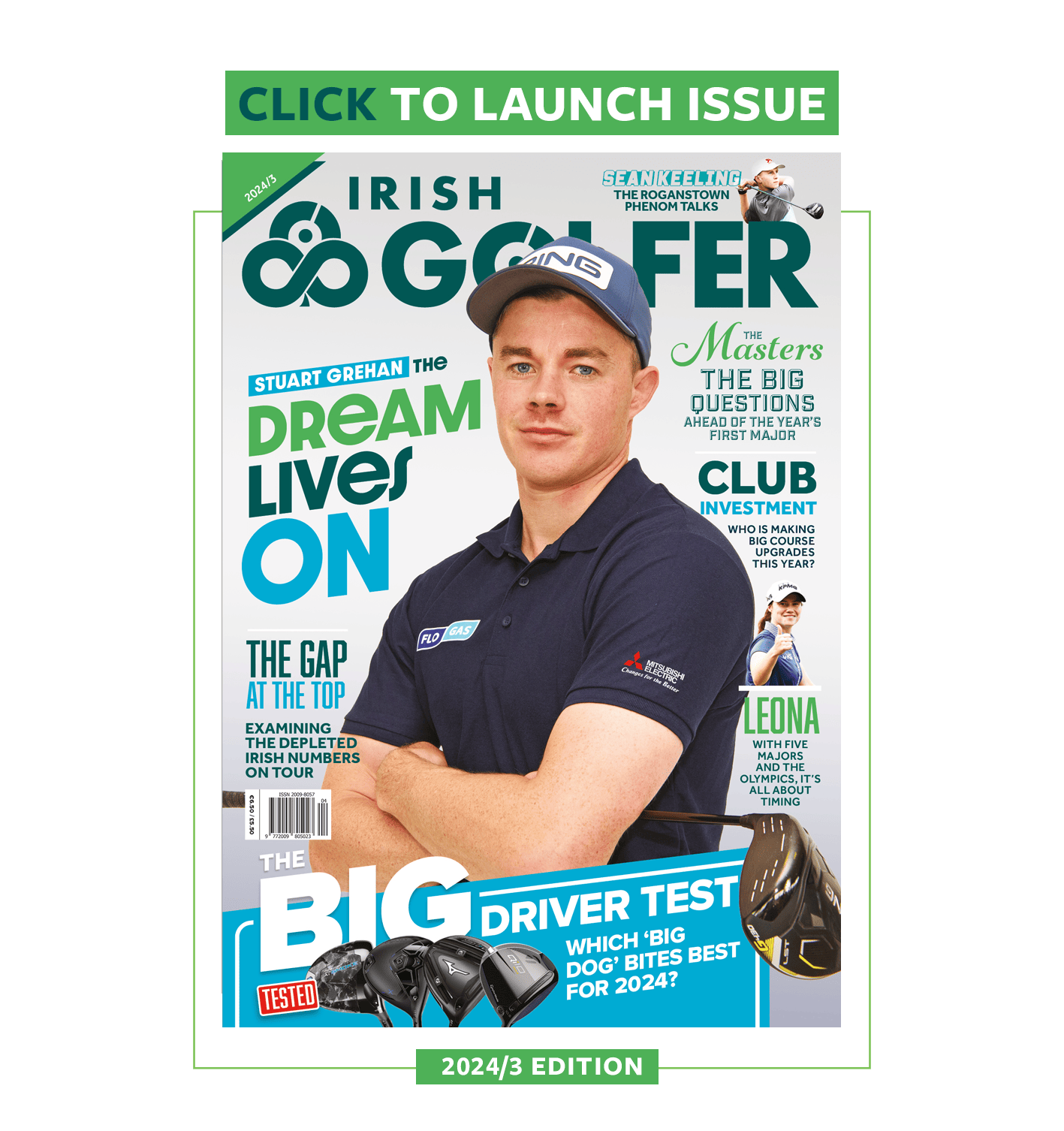
Leave a comment